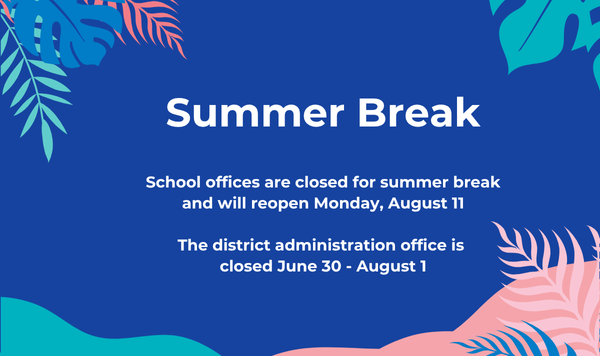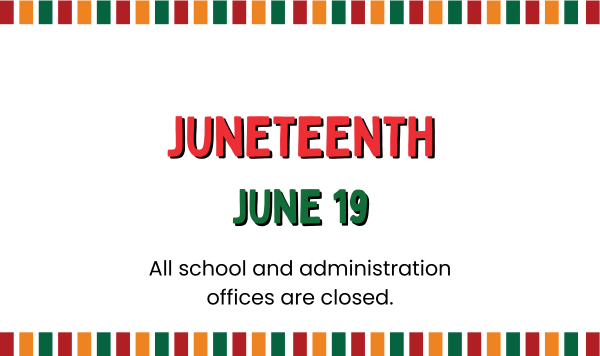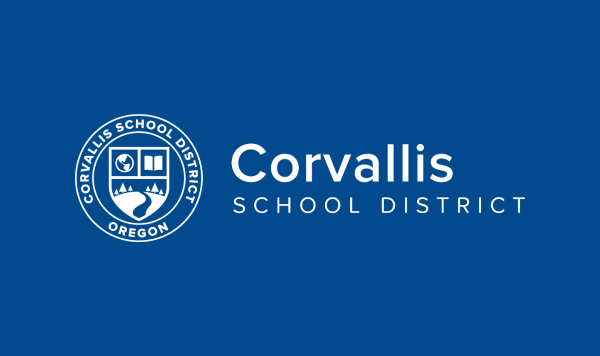Important News
Corvallis School District closed for summer break
Superintendent’s Educational Update: CHS Turf Replacement, Bond Update, Smarter Balanced Assessment for 11th Graders
Turf Replacement at Corvallis High School
The first project related to the passage of the bond is underway! The turf at Corvallis High School is in the process of removal and replacement. This is a heavily used community resource. The turf had an eight-year warranty and was in use for thirteen years. I am happy to share that the rolls of turf will not be going to the landfill; the contractor found a buyer who intends to reuse it and a few rolls will be retained at CHS for the batting cage at Taylor Field.
Turf removal will be completed tomorrow and the new turf is scheduled to begin arriving the same day. I was out at the field last week and ran into a parent and her son, a soccer player. They stopped by to see the process firsthand. We talked about how the new turf will allow soccer balls to stop rolling, unlike the old turf that was closer to kicking a ball across a paved surface.
*Frequently asked questions about the bond program are available on the Bond Program FAQs page.
Bond Program Update: Bond Sale, Master Schedule and Architect RFP
As I shared in my June 29, 2018 Education Update, we had positive feedback from the rating agencies and we have now received our ratings. We received an AA2 from Moody’s and an AA rating from S&P. These ratings are one level below the State of Oregon. This is the best we were expecting and we are happy with these results. I am looking forward to the bond sale on Wednesday.
The district’s Bond Leadership Team (formerly called the Core Team) has been working closely with Dave Fisher, the Bond Program Director, to create a draft master schedule that will be shared with you at the August Board retreat. A Request for Proposal (RFP) will be advertised starting today for Architectural Services and is published on the district website. The selection process will take place in August and will be detailed in my next Education Update.
ODE Update on Use of Smarter Balanced Assessment for 11th Grade Students
Below is a portion of an educational update from the Oregon Department of Education. The challenges of using SBAC with our 11th grade students was discussed during a recent board meeting.
“After review of stakeholder input, ODE will not pursue a change from the current high school summative accountability assessment to a nationally-recognized college entrance examination.”
Next Steps:
Through this engagement process, participants largely affirmed ODE’s concerns with switching assessments outlined above—concerns which were externally validated by national measurement organizations and experts. Instead, most participants supported the following course of action to address stakeholder concerns regarding Oregon’s statewide summative high school assessment.
ODE will pursue the following steps:
- For implementation in 2018-19: ODE will allow additional scheduling flexibility for 11th graders who might be ready to take the state test earlier in the school year. This no-cost change will allow districts to test 11th graders as early as January, alleviating some of the scheduling conflicts and over testing that can otherwise occur in late April/early May of students’ 11th grade year.
- For implementation in 2019-20 (if needed): ODE would pursue a policy to allow testing at 10th grade for students in advanced courses who have received appropriate instruction aligned to the high school content standards. To implement this recommendation, ODE would convene a committee of stakeholders in the summer of 2019 to develop guidance and criteria for determining student eligibility for 10th grade testing. The effort would also require additional funding support from the legislature to account for the additional students taking the test as 10th graders in spring 2020.
To further address stakeholder concerns about testing at 11th grade, ODE has committed to pursuing the following strategies:
- ODE is actively working with Oregon’s Higher Education Commission and Institutes of Higher Education to share college success indicator data. Access to these data would allow ODE to conduct predictive validity studies that may lead to use of Smarter Balanced assessment scores for college admissions decisions in Oregon.
- ODE will continue to work with the Smarter Balanced Assessment Consortium and other consortium member states to develop additional resources to assist educators in interpreting and using test results.
- ODE will renew efforts to support schools and districts in encouraging participation in the statewide assessment system. These efforts will include an analysis of Oregon’s current opt-out trends and development of guidance and resources to support parents and adult students in making informed decisions about the purpose of the tests and whether to participate.


